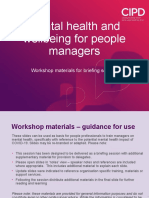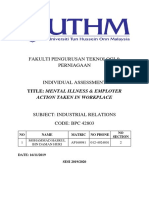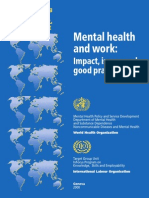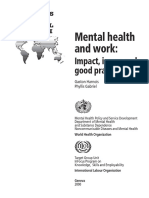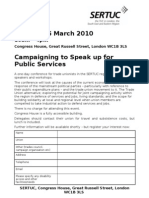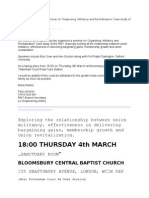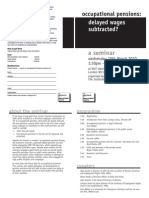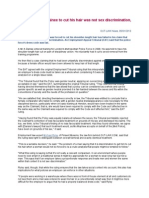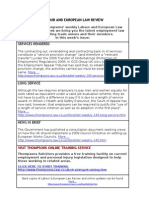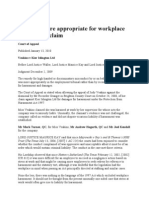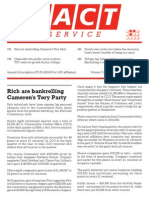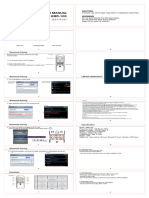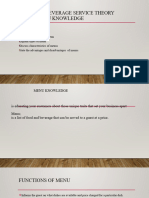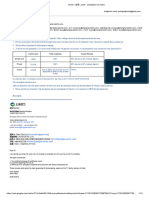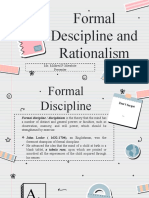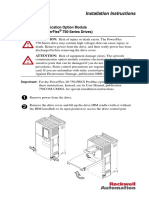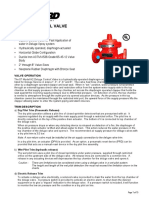0% found this document useful (0 votes)
71 views5 pagesWorkplace Report November 2009
The document discusses mental health issues in the workplace. It notes that the recession has contributed to increased stress, anxiety, and depression among workers. Reports estimate that mental health problems cost the UK economy £26 billion annually due to lost productivity, absenteeism, and staff turnover. The government and organizations like Acas and NICE are urging employers to implement policies to support workers' mental health and create healthy work environments. Unions are also working to tackle discrimination against those with mental health issues and ensure workplaces make accommodations.
Uploaded by
api-18815167Copyright
© Attribution Non-Commercial (BY-NC)
We take content rights seriously. If you suspect this is your content, claim it here.
Available Formats
Download as DOC, PDF, TXT or read online on Scribd
0% found this document useful (0 votes)
71 views5 pagesWorkplace Report November 2009
The document discusses mental health issues in the workplace. It notes that the recession has contributed to increased stress, anxiety, and depression among workers. Reports estimate that mental health problems cost the UK economy £26 billion annually due to lost productivity, absenteeism, and staff turnover. The government and organizations like Acas and NICE are urging employers to implement policies to support workers' mental health and create healthy work environments. Unions are also working to tackle discrimination against those with mental health issues and ensure workplaces make accommodations.
Uploaded by
api-18815167Copyright
© Attribution Non-Commercial (BY-NC)
We take content rights seriously. If you suspect this is your content, claim it here.
Available Formats
Download as DOC, PDF, TXT or read online on Scribd
/ 5



















